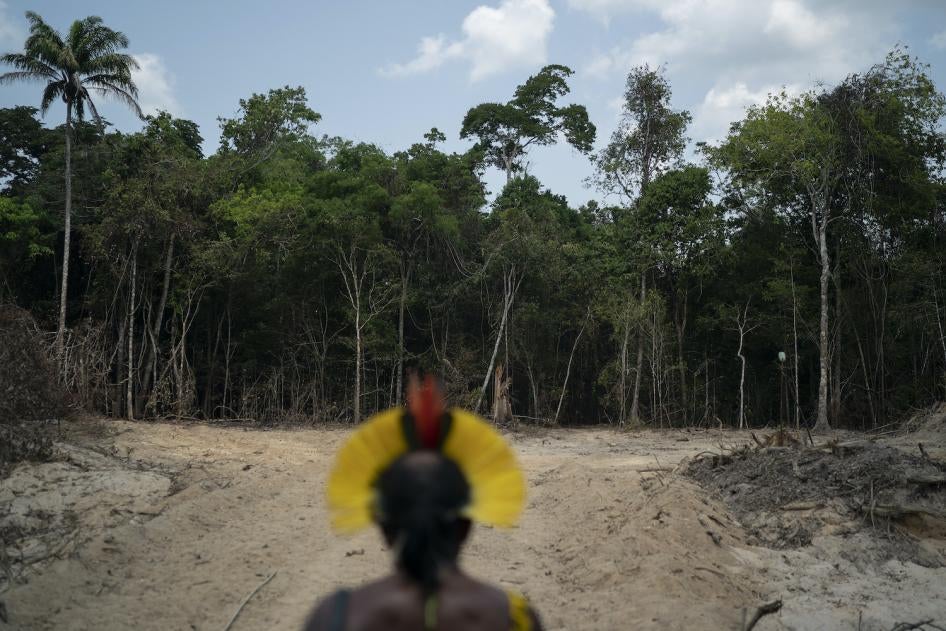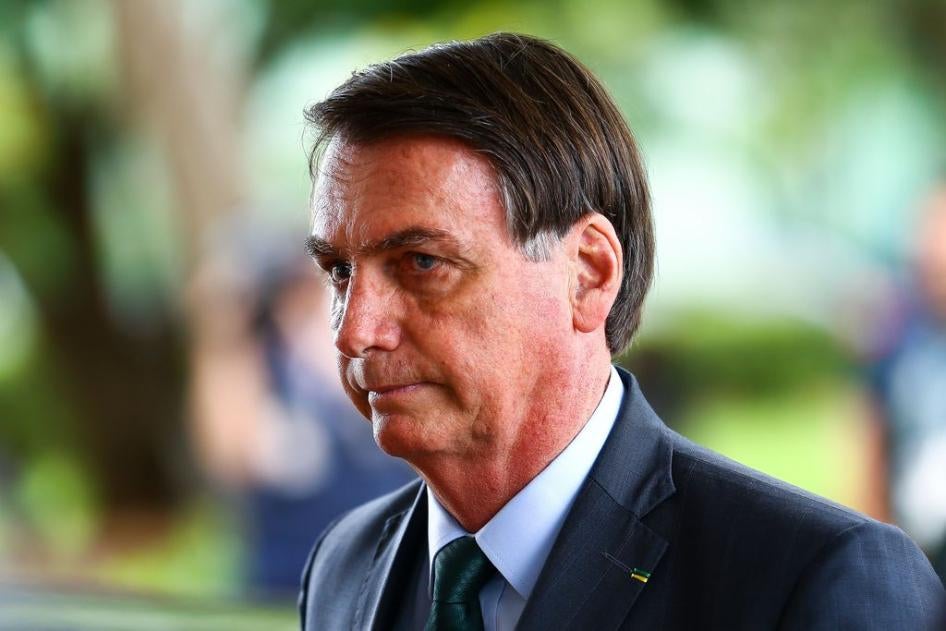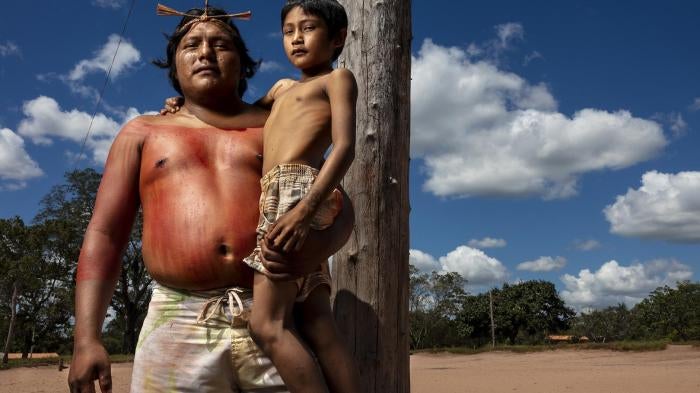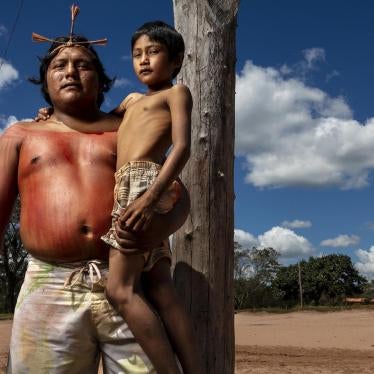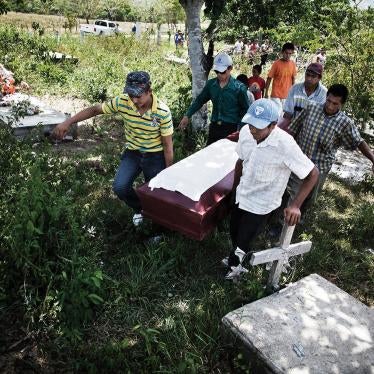When President Jair Bolsonaro presented a draft bill to Congress, on February 5, to regulate mining, hydroelectric power projects, and other commercial enterprises in Indigenous territories, he recognized that it would “face pressure from environmentalists.” And so it should.
The Amazon, the world’s largest rainforest, is one of most important carbon sinks, critical for mitigating climate change. Data from Brazil's National Space Research Agency (INPE) show that deforestation there increased by 29.5 percent from August 2018 to July 2019. Recent studies warn that the accelerated destruction is driving the Amazon toward an irreversible “tipping point” at which it will become a dry savannah and release billions of tons of stored carbon into the atmosphere. Bolsonaro’s bill could fuel this dangerous trend.
By legalizing the commercial exploitation of natural resources in Indigenous territories, the bill would invite even more encroachment on and deforestation of Indigenous land. In addition to direct environmental impacts, mining and large-scale infrastructure projects like hydroelectric dams require roads, which drive deforestation because they grant easier access to the rainforest for rogue loggers and cattle ranchers.
What the world has been watching in the Amazon is not only an environmental crisis, but also a public security emergency. In a report published last year, Human Rights Watch documented how Indigenous people who have organized themselves to defend their forests—in the absence of adequate law enforcement—have been threatened, attacked, and, according to community leaders, murdered by people engaged in illegal deforestation.
But instead of enforcing the law, strengthening federal agencies, holding criminal networks accountable, and protecting forest defenders, the government is turning a blind eye to criminal activities. With the new bill, Bolsonaro wants to eliminate illegal mining by simply legalizing it.
In addition to the long-term adverse consequences for the Amazon and the planet, the destruction of the forest in Indigenous territories has an immediate impact on the peoples who live there by eliminating sources of food and upending their way of life.
The bill comes as no surprise, given that Bolsonaro has scaled back environmental protections and has been dismissive about both the environment and Indigenous rights. Weakened environmental law enforcement has already given nearly free rein to criminal networks engaged in illegal deforestation. Deforestation in Indigenous land in the Amazon increased 65 percent from August 2018 to July 2019, according to INPE. The Indigenist Missionary Council (CIMI), a nonprofit organization, reported that from January through September 2019 there were 160 incursions into Brazil’s indigenous land by people engaged in illegal mining, logging, and land grabs.
Many Indigenous lands in the Amazon are suffering drastically from gold mining and its associated deforestation, according to Instituto Socioambiental (ISA), a non-profit organization. The Yanomami Indigenous people, for example, have reported that encroachment by thousands of wildcat miners in their territory has been associated with increased mercury poisoning, which has devasting consequences for health that can lead to lifelong disability and in extreme cases death.. Instituto FioCruz, a public research center of the Health Ministry, analyzed hair samples from women and children in two Yanomami communities and found that the majority had mercury concentrations above the limit established by the World Health Organization (WHO).
The new bill comes at a time when FUNAI, the federal agency tasked with defending Indigenous rights, is severely weakened and in many areas of the Amazon incapable of carrying out its mandate. In addition, despite suffering two massive mining disasters in the last five years, in Mariana and Brumadinho, which claimed the lives of hundreds of people, supervision of mining operations in Brazil remains quite deficient. In Pará, a state almost three times the size of Spain with extensive mining operations, there were only four mining inspectors in October 2019, according to media reports. In this context, opening up Indigenous territories for mining is recipe for abuse.
The government claims its proposed legislation would benefit Indigenous people. Yet the government did not consult with Indigenous peoples when drafting the bill, and the text itself contains no requirement to ensure meaningful consent from affected communities, as international standards call for.
Brazil’s Indigenous peoples have good reason to doubt that the government will protect their communities and the environment. Indigenous leaders have already denounced the government’s hands-off game that is allowing the plundering of the Amazon. Legislators should join them in opposing Bolsonaro’s new hands-on game—a bill that would be likely only to speed up the devastation.


